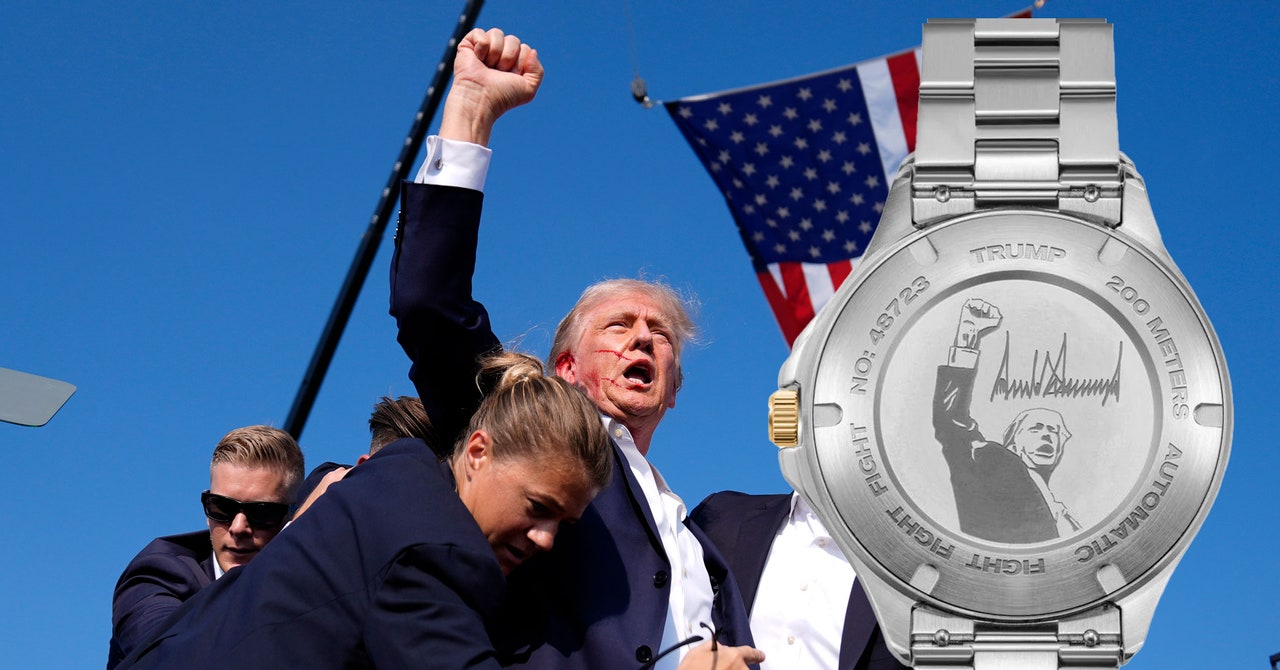The company behind Trump Watches prominently features an iconic image of the presidential candidate on its timepieces. There’s one big problem: It’s not allowed to.
…
According to the Associated Press, though, TheBestWatchesonEarth LLC advertised a product it can’t deliver, as that image is owned by the 178-year-old news agency. This week, the AP told WIRED it is pursuing a cease and desist against the LLC, which is registered in Sheridan, Wyoming. (The company did not reply to a request for comment about the cease and desist letter.)
Evan Vucci, the AP’s Pulitzer Prize–winning chief photographer, took that photograph, and while he told WIRED he does not own the rights to that image, the AP confirmed earlier this month in an email to WIRED that it is filing the written notice. “AP is proud of Evan Vucci’s photo and recognizes its impact,” wrote AP spokesperson Nicole Meir. “We reserve our rights to this powerful image, as we do with all AP journalism, and continue to license it for editorial use only.”



tbf not owning images of yourself is very counter-intuitive
Any image of you in public belongs to the person capturing it. Imagine what it would be like if that wasn’t the case. All the pictures you ever took, if there are people in them other than you, you need a signed model lease.
I think for commercial use, that would be fair. IMO photographs should be considered collaborations between the one who took the picture and anyone (recognizable) in it. If you don’t want to get consent from everyone in a photo, blur out their faces.
France has something similar in their books. But it’s not enough for you to be recognizable, you sort of have to be both recognizable and the subject of the photo. But that would just mean neither party gets to use the photo unless they agree on terms. There are exceptions for journalism and other situations.
It’s quite complicated. There’s a reason most places don’t follow that model. And you can always cover yourself in public if you don’t want people to see your image. It’s a point where the freedom of two parties collide and there’s no clear answer on where one ends and the other begins. The law has to draw a line somewhere.